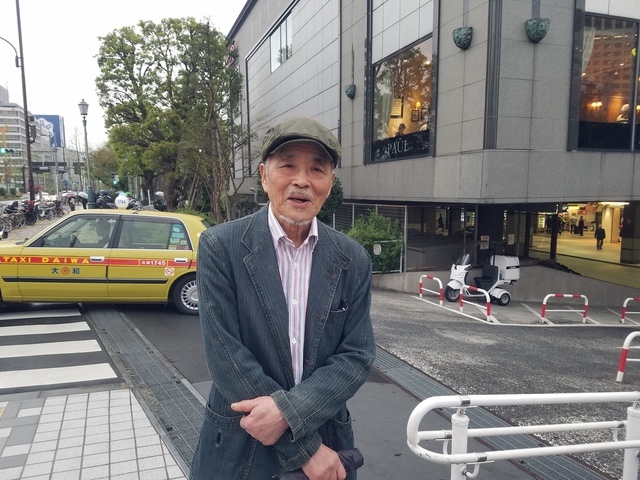 |
|
Japanese military expert Tetsuo Maeda
|
Japanese military expert underlines the contradictions in Tokyo’s revised defense guidelines
On Dec. 18, the Japanese cabinet approved the revised National Defense Program Guidelines and a midterm defense plan and announced that it was upholding its “exclusively defense-oriented military policy” that has guided Japan since World War II. This policy limits military action to minimum activity necessary for defending against an attack. But even inside Japan, the revision to the defense guidelines continues to be criticized for not adhering to the principle of exclusively defense-oriented military activity in Japan’s current “Peace Constitution.” “This revision of the defense guidelines is different from before. The government claims that its ‘exclusively defense-oriented policy’ remains unchanged, but there are numerous contradictions,” said Japanese military expert Tetsuo Maeda, 79, in a telephone interview with the Hankyoreh. Hankyoreh (Hani): There’s a big debate about whether the revised defense guidelines are in violation of the principle of exclusively defense-oriented policy. Tetsuo Maeda: The Japanese government wrote in the defense guidelines that remains committed to upholding an exclusively defense-oriented policy and the three non-nuclear principles. But if you read the defense guidelines, they contradict the exclusively defense-oriented policy. One of the best examples of this is cross-domain operational capabilities. Expressions about outer space and the cyber realm appear in 20 parts of the defense guidelines. Previously horizontally oriented defense concepts have been expanded vertically. Hani: What are some other ways in which the defense guidelines have changed? Maeda: The spotlight is on China. In the 2013 defense guidelines, North Korea came first and China after that. This time around the order is reversed. The defense guidelines don’t actually call China a threat. But they do explicitly mention China and note that it has broadly and rapidly enhanced its military power, both quantitatively and qualitatively. While North Korea has taken a back seat to China, it is specifically identified as a threat. [Japan’s] perspective on North Korea is quite different from South Korea’s. Hani: The Japanese government argues that retrofitting the Izumo-class destroyer won’t violate the exclusively defense-oriented policy because the ship won’t be carrying fighters at all times. Maeda: That’s the kind of argument that would only persuade a novice. Even the carrier USS Ronald Reagan doesn’t have aircraft on board when it’s in port at Yokosuka Naval Base. The USS Ronald Reagan isn’t carrying aircraft for half of the year. The fact that the Japanese government is turning the Izumo-class helicopter destroyer into what is basically an aircraft carrier and calling it a “multi-purpose operation destroyer” is the contradiction that results from wanting a carrier but being unable to express that openly. Retrofitting the Izumo will also mean running related programs such as pilot training for ship planes. At the end of the day, it’s going to be an aircraft carrier. Hani: For a while, the Japanese ruling party was calling it a “defensive aircraft carrier.” Maeda: An aircraft carrier is a floating base. It can’t help being fundamentally attack-oriented. Through the 1960s, the US used terms like “attack carrier” and “anti-submarine carrier,” but there aren’t any anti-submarine carriers left today. There’s no such thing as a defensive aircraft carrier. Hani: US Forces Japan have served as the “sword” and the Japan Self-Defense Forces as the “shield,” but some are saying that this distinction is starting to fall apart. Maeda: Legally speaking, that distinction was already erased with the raft of security legislation passed in 2015 that recognized the right to collective self-defense. Since that time, the US and Japan have already formed a mutually complementary relationship in the areas of both offense and defense. This revision of the defense guidelines represents the pursuit of changing relations between US Forces Japan and the Japan Self-Defense Forces, not only in the legal realm but also on a more practical level. By Cho Ki-weon, Tokyo correspondent Please direct comments or questions to [english@hani.co.kr]






